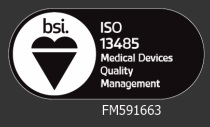Dozens of critically ill patients at the Virginia Mason Medical Centre in Seattle have been infected by a drug-resistant bacteria known as CRE after undergoing endoscopic procedures involving specialized duodenoscopes. Although local and federal health officials did not identify any deficiencies in their infection control practices, the hospital has worked to enhance their protocol for cleaning and disinfecting these scopes and have increased their scope inventory which allows them to have more time between procedures to ensure that each scope is properly cleaned.
The mortality rate for this type of bacterial infection can be as high as 50%, yet neither infected patients nor their families are being notified. Health officials state that there is little that these very sick people can do in response to this information, and according to the Virginia Mason Hospital, there is no sense in fostering fear in the public. Infection-control expert Lawrence F. Muscarella is concerned that patients are contracting this dangerous bacteria because of the design of the duodenoscopes. Muscarella's concern is that even when a hospital adheres to the recommended cleaning and disinfection guidelines, the endoscopes may continue to harbour bacteria.
Click here to read more about this outbreak...
The mortality rate for this type of bacterial infection can be as high as 50%, yet neither infected patients nor their families are being notified. Health officials state that there is little that these very sick people can do in response to this information, and according to the Virginia Mason Hospital, there is no sense in fostering fear in the public. Infection-control expert Lawrence F. Muscarella is concerned that patients are contracting this dangerous bacteria because of the design of the duodenoscopes. Muscarella's concern is that even when a hospital adheres to the recommended cleaning and disinfection guidelines, the endoscopes may continue to harbour bacteria.
Click here to read more about this outbreak...

 RSS Feed
RSS Feed
